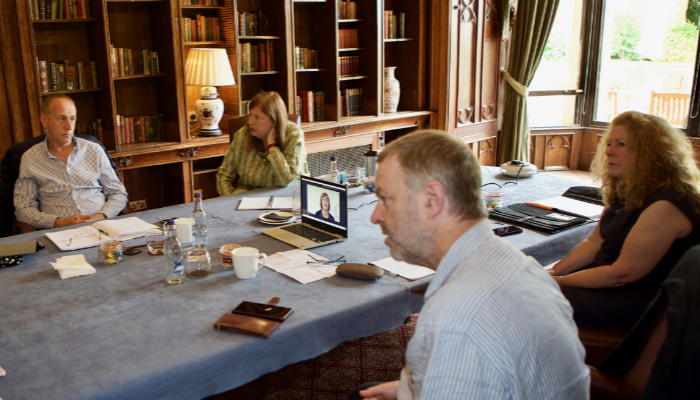It was just one slide. One I’d created at the last minute and slotted into the deck ‘just in case’. I was surprised then, when all of the delegates mentioned it when we were reviewing the content of the session. It had, apparently, challenged their thinking, given them new ideas and made them see just how important team meetings can be.
Team meetings. Part of the cultural fabric of your organisation. A key activity for any manager or leader. A highlight of the working week. No?
At a time when few managers receive training in how to run a team meeting and not many have good role models they can observe doing it, there is a danger that team meetings become a chore, a bore or they exist no more!
And yet, bringing your team together for a meeting should be an integral part of creating a winning mindset, fostering a sense of belonging and keeping close to what’s going on with your people.
Here are my tips for a successful team meeting…
Clear purpose
Before you run any meeting, there should be a clear purpose. Its even more important for a regular meeting. Is your team meeting an opportunity for each person to talk about what they’re working on, ask for ideas or help and get some kudos for recent successes? Is it just about the boss giving essential notices? Do you have time for non-work-related items?
Ask yourself this question: how do you know when it’s been a good meeting? If you find that a difficult question to answer, it might be time to revisit the purpose of the meeting.
Regular day and time
My preference is always to hold my team meetings on the same day at the same time. Put it in your calendar as a recurring meeting and make sure it happens when it’s supposed to. This signals to your team that the meeting is important. It maximises the chances that everyone will be there – because they know when it is.
Also, it creates certainty (the C in the SCARF model, remember) and that’s very important. Especially if your organisation is going through some changes or uncertainty, your regular team meeting can be a rock to cling to.
If you’re not sure how often or how long, start with a weekly meeting for 30 minutes. Do that for 4-6 weeks and review. Make it longer or shorter, make it more or less frequent after that based on experience.
‘Just enough’ time
It’s your team meting so you can decide how long it’s going to be. I know some leaders who hold daily meetings that last just ten minutes. I know others who have a weekly two-hour meeting. The ideal length is just enough time to do everything to fulfil the purpose of the meeting – and no longer.
Part of the reason some people dislike team meetings is that they drag on and seem not to achieve anything. Yours can be different.
Everyone contributes
It’s a team meeting. Make sure every person in the team contributes. I often start my meetings by going around the table (or screen) and asking each person the same question. Often, it’s something like ‘What are your three highlights of the last week/month?’
Part of the art of running a meeting is to spot who’s waiting to speak, to invite input from anyone who’s been particularly quiet and to ensure that the same voices don’t dominate every discussion.
Rotate the chair
Sometimes, leaders stop running team meetings because they resent the time it takes to prepare a good meeting. The simple solution is to rotate the chair. Let a different person in your team run the meeting each week. It’s great development for them, it ensures there are lots of fresh ideas and it reduces the pressure on you to make every meeting a success.
Yes, you’ll need to support the person who turn it is this time. You might need to make time to hear their plans beforehand and to debrief afterwards, but only the first time. Once everyone gets their confidence, you’ll see a significant change in your workload around team meetings.
Include team development activities
As well as using the meeting to handle business, it can be fun occasionally to include some team or personal development activities. You might need a longer meeting for this, so plan it well in advance and make sure everyone knows.
It could be a guest speaker, or an online training session you can do together. One leader I know often selects a book, article or TED talk and asks his team to look at it before the meeting. Then they spend an hour discussing the topic.
You might do some ‘knowledge transfer’ within the team. Ask someone with a specific expertise to run an introductory session for the rest of the team. Or a masterclass. Whatever will be of value.
Celebrate successes
Everyone loves to feel a part of a winning team. Celebrate individual and team successes. I don’t mean organise a party every week, just make sure that successes are acknowledged and that people feel good about what they have achieved. When the team chalks up a big win, that might be the time to take everyone to lunch.
Small rewards can be as meaningful as big ones. Never underestimate the power of simply telling someone what they did well. They know it, but now they know that you know it too.
Finally…
If you’ve read this article and you’re thinking it might be time to refresh your team meetings, may I suggest you share the article with your team and discuss with them how you might give your meetings a new lease of life.






